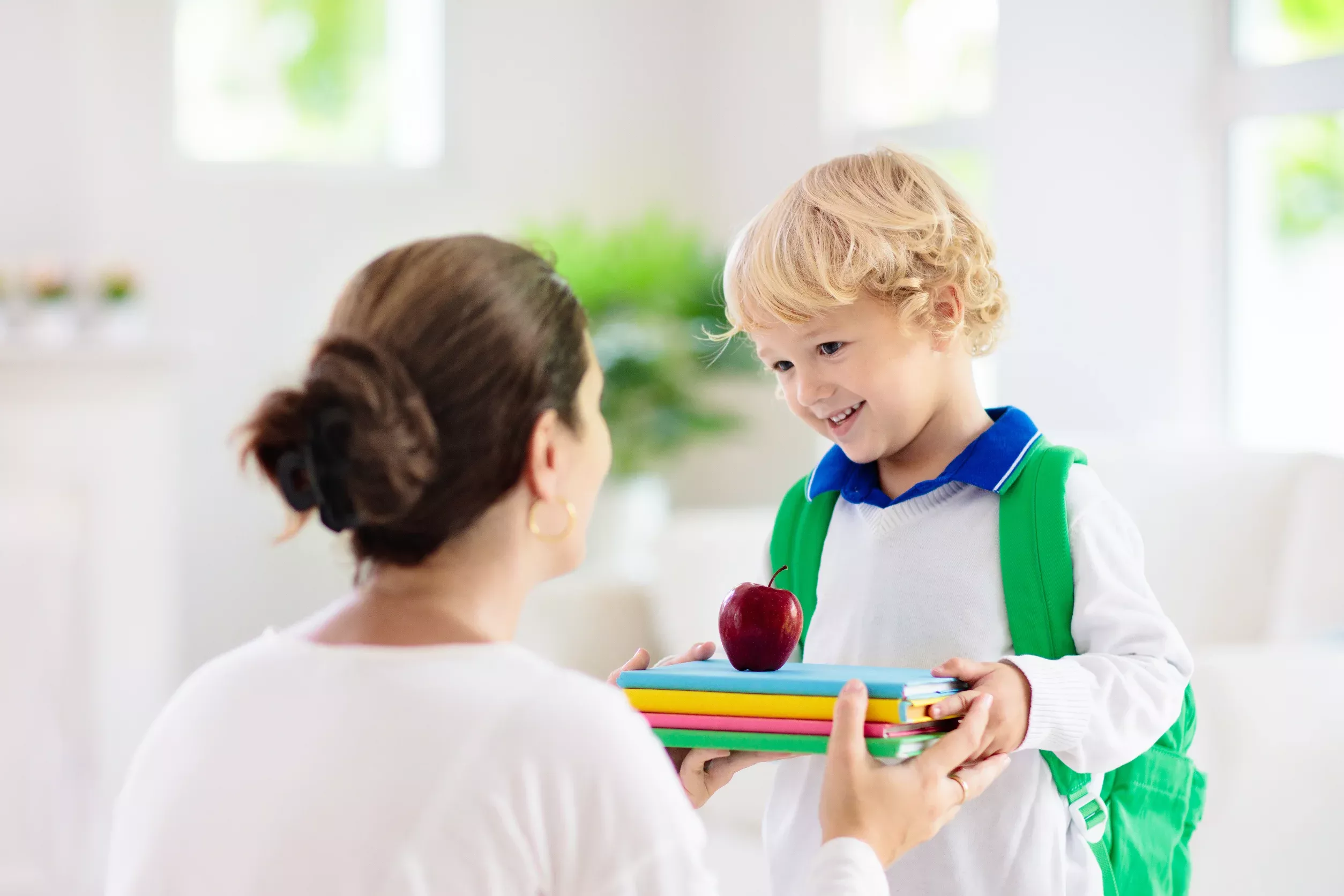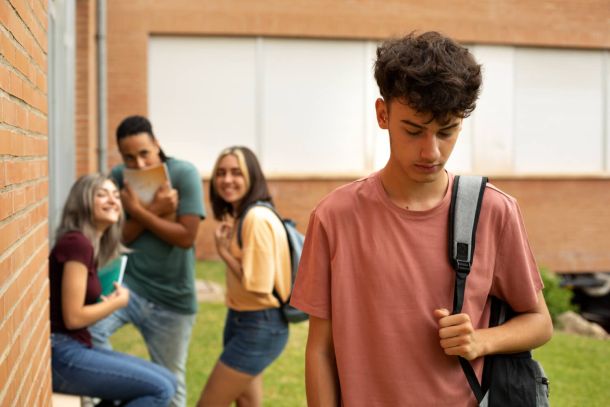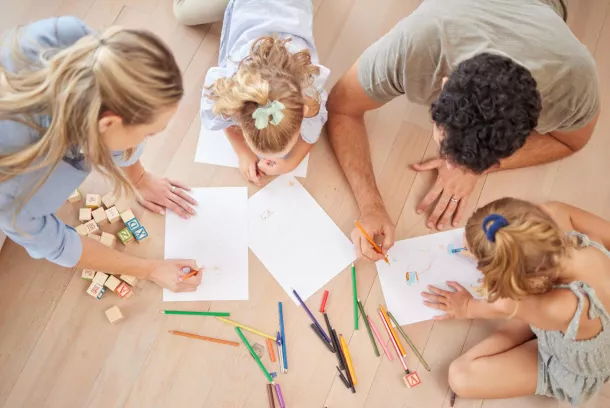
10 benefits of family engagement in school and kindergarten education
Our lives as adults are directly influenced by our early-years upbringing and the role models we had. The extent to which our basic physical and emotional needs were met weighs a great deal on how we behave, build relationships, and relate to life, in general. Strictly delimited roles between home caregivers and school educators are a matter of the past. Modern studies in the fields of education and psychology show that the benefits of family engagement in education extend on all levels: academically, socially, emotionally, and even professionally.
In recent years, thanks to technology, the research methods have become more precise and studies now cover a great diversity of individuals. The results consistently confirm the clear benefits and long-term impact on children when parents and school team up and collaborate smoothly.
How do children benefit when parents are engaged in their education?
1. Better learning results
The facts bear no doubt, as scientific research proves it. Let’s take a largely cited longitudinal study conducted in Chicago in 200 public elementary schools. The purpose was to track the effect that parental involvement has on children's academic progress. The results showed that constant family engagement in education might increase student achievement by 10 times.
What kind of involvement are we talking about? For example, teachers met parents in person, sent home useful materials, or talked to them on the phone about certain challenges of the child. In 71 elementary schools that sought to improve the academic skills of low-income students, students registered significant progress in both reading and math.
To go further on the matter, the idea that academic success is conditioned by the student's material situation is no longer valid. The National Center for Family & Community Connections with School found that students with involved parents achieved academic success regardless of income or background. This is great news! It also makes it clear that parents need to be even more consciously and intentionally involved in their children's education.on."Parental involvement, in almost any form, produces measurable gains in student achievement."
- Armendia Dixon (1992)
2. Reducing absenteeism
Surprisingly (or not), according to the Harvard Graduate School of Education, many parents do not understand the consequences of their child's skipping classes and tend to underestimate the value of the school days their child has missed. That's why it is so important for families to know the importance of their children attending classes and that it is also up to them to ensure that. Although absenteeism is a sensitive topic for both teachers and parents, constant and transparent school-parent communication is the best way to solve it.
A good example of this matter is a study of 10,900 families by education policy researchers Carly Robinson and Minoca Lee and psychologists Eric Dearing and Todd Rogers. Over the course of a year, the schools involved sent by mail, to the families of students with absences, six warning messages regarding the importance of attending classes. At the end of the year, it was found that students from the 6,500 families who received reminders missed 8% fewer days of school. Amazingly, students with the lowest class attendance, whose families received the mail messages, were absent 15% less. We’re talking about significant change in just one year and using easy-to-implement methods.
Imagine the impact today, when communication channels have evolved and parents can easily collaborate with teachers and school administrators. Kinderpedia includes live chat communication and timely observations, easily accessible via the parent and teacher app, respectively. With a single click, you can send messages and even alerts about special situations.
3. Improving social skills and adaptability
We know how impactful the first three years of life are on defining our life as adults. For toddlers, parents (or caregivers) are the first and main role models. At this early age, children imitate everything they see in the people close to them. By observing the adults, small children learn behaviours and attitudes towards their environment, but also towards their own person. Thus, if the parents show interest, initiative, trust, and openness in the relationship with the kindergarten or school, the children will relate to the educational institutions in the same way.
Therefore, engaging the family in the academic journey from the very beginning can have long-term benefits. Still, you don't have to wait too long to enjoy the fruits of your effort. You will be able to see a visible impact from the first days of school or kindergarten on how well the little ones adapt to the new stage in their lives.
Here’s a simple example of engagement: celebrating small victories at school. It may not sound like much; it may even raise concerns about „spoiling” the kid. Yet, studies show that this kind of acknowledgment has major benefits on self-esteem and resilience. Going further, successes can be celebrated within the school by involving families. This could increase the level of engagement and proactivity of all the participants in the educational process. When families spend time together having fun and connecting, they create strong bonds and build the foundation for mutual trust.
Without a doubt, family engagement in their children's school activities has positive effects beyond academic results. There are also numerous studies that demonstrate the strong and positive effects on children's classroom behaviour and social skills. For example, the Education Northwest NGO conducted an extensive analysis that demonstrated how parental involvement leads to improvements in student attitudes and social behaviour.4. Continuity in the educational process
It is worth knowing that transition periods between education cycles have a much higher risk of dropping out, as statistics indicate. In these stages, parents should pay more attention to children, to support them to adapt to change. Schools should also provide the appropriate support to families in these delicate phases.
5. Well-defined roles and tasks leading to efficiency and well-being
One way to bring structure and clarity to the lives of children is to establish common roles, tasks, and goals together.
When we become aware of how having clear roles impacts individuals and the whole group, we experience a state of well-being and motivation. It applies to adults, too - teachers, managers, or parents. This effect is even stronger among children and adolescents.
Depending on the role you have, Kinderpedia's dashboard offers exactly the tools you need. Centralised functionalities for administrators or headmasters, classroom management functionalities and customisable child progress reports for teachers, digital gradebook and newsfeed for parents, and access to schedule, resources library, homework and direct feedback for children.
Thus, Kinderpedia empowers teachers to gain more visibility over their activities and plan their lessons and tasks quicker. Children become more independent as they upload homework with a few taps, scroll through resources and initiate real-time conversations with their teachers when needed.
6. Reducing risk behaviour among children
The goal, however, is not so much to discourage negative behaviours as to encourage and reinforce positive ones. Thus, a family that shows interest, support, and active involvement in the student's school activity, can encourage him not only to improve his academic results, but also to constantly practise physical activities, as in the example given by Haerens, De Bourdeaudhuij, & Maes in a 2007 article.d
7. Connecting all educational actors
We all want to feel truly connected to the relevant people in our lives. Children are no exception. They, too, need to feel connected to family members but also to teachers, friends, and colleagues. These links give them a sense of safety; they feel supported and ready to learn.
Connection, in this context, means communication, genuine interest in what takes place in the classroom, feedback (not criticism), and participation in school activities. When parents get involved alongside teachers and students, they feel relevant, supported, and better prepared to stand by the school in the whole process of educating the child.
At the same time, when schools or other institutions connect and engage with parents and children, they gain valuable information about what families need, or how their programs and policies work in real life.8. Adapting taught content to students' knowledge, interests and culture
It's no longer a secret that students understand and assimilate new information much more easily when it is related to everyday life experiences. Furthermore, understanding abstract notions and their utility, increases the interest in discovering new things.
This phenomenon is explained by numerous studies about how the brains work. When students think about something they already know, certain neurons get activated and make it easier for other neurons to turn on and form new neural pathways. They connect the new information with the information already "stored" in the brain. In other words, "neurons that turn on together, get wired together." Thus, by associating "new learning" with "old learning", it becomes easier for students to assimilate and retain information.
Where do families intervene in this process? First of all, parents need to observe their children's passions, relevant experiences, and already existing knowledge. Next, they can take this information and communicate it to educators, so that they, in turn, can find the appropriate methods to teach new concepts in the classroom.
9. The school-family partnership supports personalised interventions for each family
So, why not education, too? Engaging families in the education journey allows - at a community level - assistance and personalised interventions to meet the needs of each family. But to achieve this, educational institutions must learn what those needs are, which can only happen through collaboration.
Open and constant communication between educational institutions and families can lead to socio-culturally appropriate and relevant plans and services. In this way, the school can better respond to needs, build on family strengths, rely on community support, and use resources more effectively and consistently - as Doolan stated in a 2005 article.
As long as there is open communication between all those involved, they can identify much more easily real problems, find methods of overcoming crisis situations, identify support tools, and even somewhat anticipate and prevent eventual undesirable future events.10. Impact on children's future professional outcomes
Knowing that our actions impact someone's life to such an extent is a great responsibility and can feel overwhelming. Let's not forget, though, that it is a shared responsibility and that shaping children into future accomplished adults is "teamwork". We are not and must not be alone in this complex and, altogether, wonderful process - educating young people.
The study highlights that local partnerships between schools, families, and institutions can accelerate change when they provide use cases and experiences that build capacity and provide professional development for young people. This collaboration helps all participants to follow a much clearer, more defined, and better educational path for the children. It also helps the entire community by improving the practices for generations to come.
We cannot overlook the benefits of engaging families in education and the direct link to a child's motivation and perspective of academic success. It is true that we live in a world where everything happens fast forward and time flies in the blink of an eye. However, with a little planning, common goals, effective communication, and management, we will find a way to give our children the support they need in their education.
How Kinderpedia supports family engagement in children's education
Kinderpedia is designed to bring together all these advantages. Parents find out in real time about their children's day at school or kindergarten: from attendance, mood, and participation, to how much they ate and how much they slept in the case of younger children. By being aware of children's projects and progress at school, parents can follow up the educational process at home and support children where they need it.
Kinderpedia creates the proper environment for a powerful partnership between school and family. Our approach places student-teacher-parent collaboration at the very centre of the learning activity.

Kinderpedia
The complete communication and management solution for schools and childcare centres.
Simplifies teachers' work and brings parents closer to their children's school progress.
Recommended articles
Want to improve your center quality? Kinderpedia is here to help! Not only do we provide thousands of informational content pieces like blog posts, podcasts, webinars and more, we are also makers of the #1 Rated and Reviewed Childcare Software.







